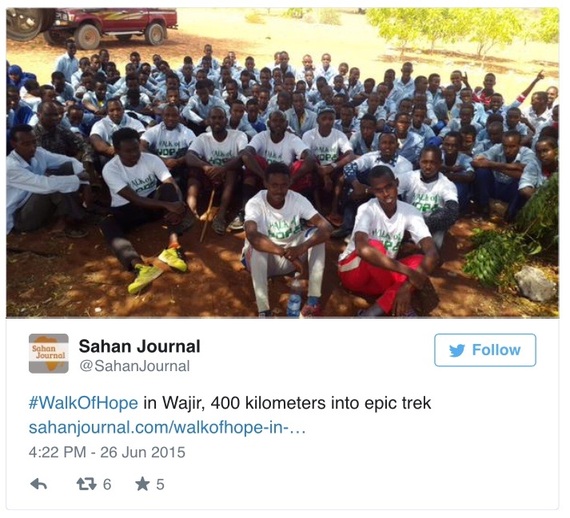The Kenyan state has an ethnicity problem. By presenting their conflict with the terrorist group al-Shabaab as a conflict of ethnicity, ethnic Somalis living in Kenya are at increasing risk of discrimination, marginalisation, and human rights abuses.
Ethnic Somalis in Kenya are marginalised based on the fear that they are supporters of, or related to, al-Shabaab. This marginalisation of ethnic-Somalis includes harsh measures used against the group in order to ‘weed out Shabaab sympathisers’. Operation Usalama Watch, which began in April 2014, arrested over 4000 Muslims in four months. Police use extreme force, stealing items such as phones and watches from suspects, with a high number of reports of physical violence and rape. WhenHuman Rights Watch interviewed 101 refugees and asylum seekers in Eastleigh about their experiences of police custody in 2013, almost all of them reported that the police repeatedly called them ‘terrorists’ or ‘al-Shabaab’.
The government’s monopoly on citizenship means that 60% of Somali residents living in the North Eastern Province of Kenya, the area most densely populated with Somalis, do not have ID cards. Upon failure to produce an ID card, Somalis can be arrested and punished. Video footage captured by Al Jazeera shows the military forcibly bundling innocent men and women into trucks, with one man shouting ‘I am not al-Shabaab’. Somalis are being deliberately kept in a state of vulnerability.
The Kenyan authorities are conflating immigration issues with terrorism issues, giving legitimacy to the violation of the rights of ethnic-Somalis. This is a conscious tactic on behalf of the Kenyan government: focus on ethnicity forces focus away from issues such as government corruption and unfair allocation of resources.
This tactic is working. In 2014, the Managing Editor of Kenya’s most popular newspaper the Daily Nation, Mutuma Mathiu, wrote ‘Are we going to sit around and wait to be blown to bits by terrorists?…every little, two-bit Somali has a big dream – to blow us up…terrorists are pouring across the border’. Ethnic tension is the harmful consequence of the Kenyan state’s insistence in conflating Somali ethnicity with terrorism.
However, Somalis living in the NEP are fighting back. Last month, a small group of Somalis embarked on a 1000 kilometre walk from Garissa to Mandera. They arrived in Mandera this week, significantly larger in number than when they started. Their trek encouraged others to join, providing hope and inspiration to the communities they walked through.
Named the #WalkofHope, the month long trek’s aim was to bring international attention to the plight of Kenyan-Somalis. Unfortunately, the walk did not feature in the international media at all: it seems that Somalis are destined to only make the news when al-Shabaab attack, as they have been doing with increasing frequency in the past year.
By reporting on al-Shabaab but not the Somalis who aim to separate themselves from the Islamist group, we as journalists play into the hands of the Kenyan state, who use fear of al-Shabaab as a way of legitimising discrimination of Somalis.
Hearing the stories of Somalis in the NEP is the first step in fighting prejudice and discrimination. We must listen to the voices of those who are suffering. With President Obama currently visiting Kenya, now is the perfect time to bring to light the plight of one of the world’s most disadvantaged ethnic groups.
Source: Huffington Post/++































